Related Research Articles
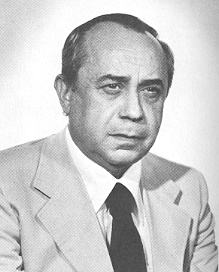
Leonardo Sciascia was an Italian writer, novelist, essayist, playwright, and politician. Some of his works have been made into films, including Porte Aperte, Cadaveri Eccellenti, Todo Modo and Il giorno della civetta.

Mariano Rampolla del Tindaro was an Italian Cardinal in the Roman Catholic Church, and the last man to have his candidacy for papal election vetoed through jus exclusivae by a Catholic monarch.

Giovanni Papini was an Italian journalist, essayist, novelist, short story writer, poet, literary critic, and philosopher. A controversial literary figure of the early and mid-twentieth century, he was the earliest and most enthusiastic representative and promoter of Italian pragmatism. Papini was admired for his writing style and engaged in heated polemics. Involved with avant-garde movements such as futurism and post-decadentism, he moved from one political and philosophical position to another, always dissatisfied and uneasy: he converted from anti-clericalism and atheism to Catholicism, and went from convinced interventionism – before 1915 – to an aversion to war. In the 1930s, after moving from individualism to conservatism, he finally became a fascist, while maintaining an aversion to Nazism.
The primary languages of Calabria are the Italian language as well as regional varieties of Extreme Southern Italian and Neapolitan languages, all collectively known as Calabrian. In addition, there are speakers of the Arbëresh variety of Albanian, as well as Calabrian Greek speakers and pockets of Occitan.

Ranuccio Bianchi Bandinelli was an Italian archaeologist and art historian.

La Civiltà Cattolica is a periodical published by the Jesuits in Rome, Italy. It has been published continuously since 1850 and is among the oldest of Catholic Italian periodicals. All of the journal's articles are the collective responsibility of the entire "college" of the magazine's writers even if published under a single author's name. It is the only one to be directly revised by the Secretariat of State of the Holy See and to receive its approval before being published.
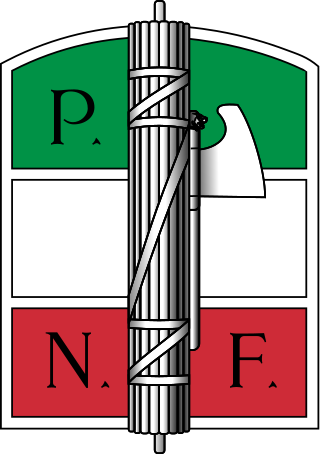
The National Fascist Party was a political party in Italy, created by Benito Mussolini as the political expression of Italian fascism and as a reorganisation of the previous Italian Fasces of Combat. The party ruled the Kingdom of Italy from 1922 when Fascists took power with the March on Rome until the fall of the Fascist regime in 1943, when Mussolini was deposed by the Grand Council of Fascism. It was succeeded, in the territories under the control of the Italian Social Republic, by the Republican Fascist Party, ultimately dissolved at the end of World War II.
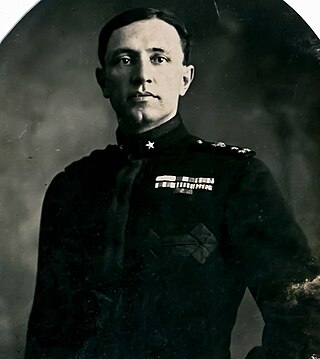
Romano Romanelli was an Italian artist, writer, and naval officer. He is best known for his sculptures and his medals.
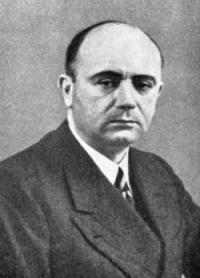
Enrico Cerulli was an Italian scholar of Somali and Ethiopian studies, a governor and a diplomat.

Luigi Federzoni was an Italian nationalist and later Fascist politician.

Graziadio Isaia Ascoli was an Italian linguist.
Sursum Corda was an Italian student movement organized with irredentist purposes before 1914. It may be considered one of the precursors of fascist organizations in Italy and seems to have its origins in the Italian youth organisations from the first years of the 20th century such as the battaglioni studenteschi founded in 1906 in Milan. The model were the German Burschenschaften.
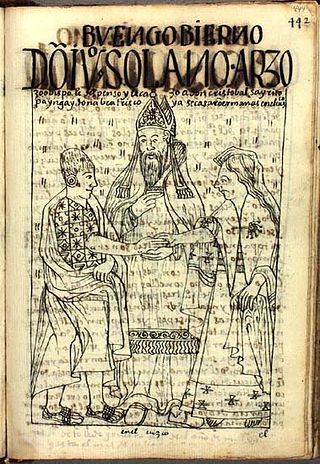
Juan Solano, O.P., was a Spanish Dominican missionary and the second Catholic bishop of the Diocese of Cuzco, Peru (1544–1562).
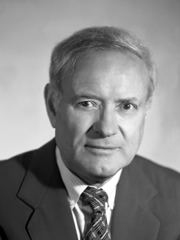
Paolo Volponi was an Italian writer, poet, and politician.
Claudiu Isopescu was an Austro-Hungarian-born Romanian literary historian and translator.

The Kingdom of Italy was governed by the National Fascist Party from 1922 to 1943 with Benito Mussolini as prime minister and dictator. The Italian Fascists imposed totalitarian rule and crushed political and intellectual opposition, while promoting economic modernization, traditional social values and a rapprochement with the Roman Catholic Church.

The 2020 Italian by-elections were called to fill seats in the Parliament that became vacant after the 2018 general elections. In 2020, by-elections were held for the Chamber of Deputies the Senate of the Republic.
Enrico Maccioni is an Italian painter of contemporary art.
Michele Guerrisi was an Italian sculptor, painter and writer.
Beniamino De Ritis was an Italian-born journalist-commentator and author.
References
- ↑ Nella notte del 12 settembre 50 volontari della "Sursum corda" ben armati con 15 ufficiali al comando del cap. Leo Negrelli passarono la barra di Cantrida, in G. A. Chiurco, Storia della Rivoluzione fascista, I vol, 1929.
- ↑ Goering's Italian Exile 1924-1925 Author(s): Michael Palumbo Source: The Journal of Modern History, Vol. 50, No. 1, On Demand Supplement (Mar., 1978), pp. D1035-D1051 Published by: The University of Chicago Press Stable URL: https://www.jstor.org/stable/1877311 Accessed: 07/02/2009 05:50
- ↑ Intellect, Volume 106, Society for the Advancement of Education, 1977, p. 490
- ↑ la radiofonia italiana durante gli anni del fascismo - Roma e il Mondo (in Italian)
- ↑ Macklin, Graham (2007). Very Deeply Dyed in Black: Sir Oswald Mosley and the Resurrection of British Fascism After 1945 (2nd ed.). London: Taurus. p. 205. ISBN 978-1-84511-284-4.
- ↑ Corrado Incerti, Sandro Ottolenghi and Piero Raffaelli GIORNALISTI ITALIANI AL SERVIZIO DELL'AGENZIA TERRORISTICA Archived 2016-03-25 at the Wayback Machine , L'Europeo , 1974 (in Italian)